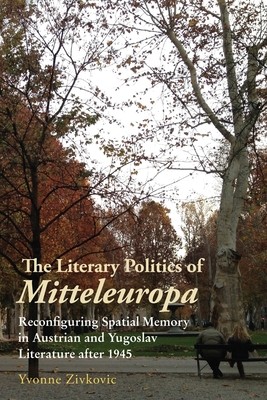
- We will send in 10–14 business days.
- Author: Yvonne Zivkovic
- Publisher: Camden House (NY)
- ISBN-10: 1640140883
- ISBN-13: 9781640140882
- Format: 15.5 x 23.1 x 2 cm, kieti viršeliai
- Language: English
- SAVE -10% with code: EXTRA
Reviews
Description
Shows how postwar writers in Austria and Yugoslavia re-imagined the concept of Mitteleuropa, Central Europe, as a cultural space between nostalgia and totalitarianism.
The German term Mitteleuropa, or Central Europe, was never just a geographical concept: it connoted extending German influence to the east. In the 1980s, the eastern European dissident writers György Konrád, Czeslaw Milosz, and Milan Kundera revived the concept to counter a perceived Cold War memory vacuum, aligning themselves with the multiethnic and multilingual legacy of the Habsburg Empire. Their observations gave rise to a protracted public debate that posited literature against politics. This debate was both anticipated and expanded upon in postwar literary works by Ingeborg Bachmann, Peter Handke, and Christoph Ransmayr in Austria, and Danilo Kis, Aleksandar Tisma, and Dubravka Ugresic in (the former) Yugoslavia, all of whom questioned notions of geographic identity and national allegiance by imagining Mitteleuropa as a cultural space between nostalgia and totalitarianism.Yvonne Zivkovic draws on space and memory studies to show how Mitteleuropa emerged as an alternate memory discourse that reveals deep ties between the Second Austrian Republic and the Socialist Federal Republic of Yugoslavia. The writers discussed address the major themes of the 1980s debate - traumatic memory, geographic displacement, and transnationalism - but also share a literary aesthetics that privileges the intersections of prose fiction and the essay, the literary fragment, and intertextuality. Zivkovic's book shows the persistence of Mitteleuropa as a literary network and as a cultural collective that examines civic values against public tendencies of memory manipulation.
EXTRA 10 % discount with code: EXTRA
The promotion ends in 22d.22:56:06
The discount code is valid when purchasing from 10 €. Discounts do not stack.
- Author: Yvonne Zivkovic
- Publisher: Camden House (NY)
- ISBN-10: 1640140883
- ISBN-13: 9781640140882
- Format: 15.5 x 23.1 x 2 cm, kieti viršeliai
- Language: English English
Shows how postwar writers in Austria and Yugoslavia re-imagined the concept of Mitteleuropa, Central Europe, as a cultural space between nostalgia and totalitarianism.
The German term Mitteleuropa, or Central Europe, was never just a geographical concept: it connoted extending German influence to the east. In the 1980s, the eastern European dissident writers György Konrád, Czeslaw Milosz, and Milan Kundera revived the concept to counter a perceived Cold War memory vacuum, aligning themselves with the multiethnic and multilingual legacy of the Habsburg Empire. Their observations gave rise to a protracted public debate that posited literature against politics. This debate was both anticipated and expanded upon in postwar literary works by Ingeborg Bachmann, Peter Handke, and Christoph Ransmayr in Austria, and Danilo Kis, Aleksandar Tisma, and Dubravka Ugresic in (the former) Yugoslavia, all of whom questioned notions of geographic identity and national allegiance by imagining Mitteleuropa as a cultural space between nostalgia and totalitarianism.Yvonne Zivkovic draws on space and memory studies to show how Mitteleuropa emerged as an alternate memory discourse that reveals deep ties between the Second Austrian Republic and the Socialist Federal Republic of Yugoslavia. The writers discussed address the major themes of the 1980s debate - traumatic memory, geographic displacement, and transnationalism - but also share a literary aesthetics that privileges the intersections of prose fiction and the essay, the literary fragment, and intertextuality. Zivkovic's book shows the persistence of Mitteleuropa as a literary network and as a cultural collective that examines civic values against public tendencies of memory manipulation.


Reviews